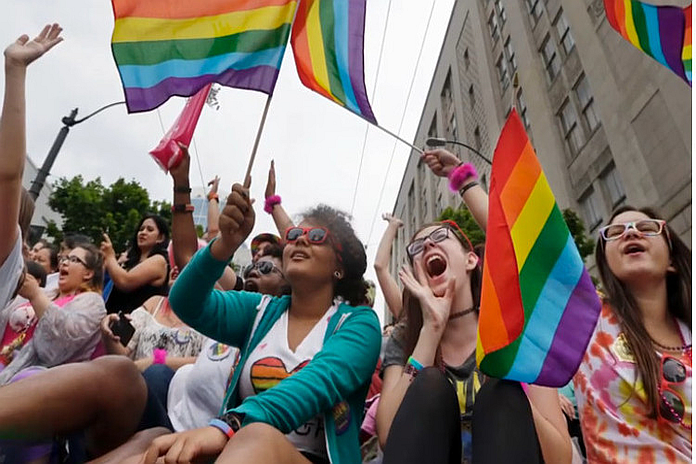WASHINGTON, USA – The designation of June as Pride Month at the international level, in addition to the other dates that LGBT movements have appointed in each country to celebrate Pride, are not ceremonial events, but a reminder of the struggles of LGBT movements against prejudice, stigma and violence, to honor those who are no longer here and to take stock of what has been achieved and what is pending.
In this context, we want to make some joint reflections on the situation of LGBT people in the Americas.
We recognize and celebrate the legal and social progress that has been made in the Americas regarding respect for the diversity of sexual orientations and gender identities. Several countries in the region have passed gender identity laws, laws that recognize LGBT families through adoption, access to assisted fertilization and the recognition of co-maternal and co-paternal filiations, equal marriage laws and public policies related to work, health and education to begin to reverse the historical structural exclusion of LGBT people.
However, there is still a long way to go to avoid situations that negatively impact the lives of LGBT people.
Cases of extreme violence against LGBT people continue to be frequent throughout the region and States must do more to respond to these attacks. Greater emphasis is needed on the development of public policies for the prevention of such violence: verifying the number of victims is an indicator, but not a solution. We urge the implementation of effective protection systems for people at risk, public campaigns to confront prejudice and stigma, and the reform of judicial systems to ensure an equitable approach and to provide reparations and assistance to victims.
We would also like to draw attention to the delicate situation of migrants who suffer from violence or stigmatization because of their sexual orientation, gender identity and gender expression. The lack of identity documents consistent with their gender identity exposes trans people to greater difficulties and violence when migrating.
Couples and families made up of LGBT people see their right to family reunification violated as migrants in many countries of our region. Many of these people flee poverty and violence due to prejudice in their countries of origin to receive more of this violence from the States they arrive in and even from other migrants.
Poverty, which has increased in the Americas and in the world due to the COVID-19 pandemic, impacts LGBT people because of structural exclusion from education and formal employment.
We urge States to commit to the implementation of social policies to address poverty that are not only focused on the heterosexual nuclear family model, but also recognize the diversity of families and of coexistence and care arrangements for all people.
Sex work, in addition to being a source of income in regular situations, constitutes a livelihood for sectors of the LGBT population and women, especially when the economic situation worsens, as is the case in Latin America and the Caribbean after the COVID-19 pandemic. We urge States to respect and guarantee the human rights of sex workers, who continue to be exposed to police violence, lack of work and social rights, and high levels of poverty.
Partial progress can be observed, but there are also worrying setbacks in the region regarding full compliance, guarantee and possibilities of exercising sexual and reproductive rights, including for children and adolescents.
We request that where laws still exist that criminalize consensual sexual activity between adults based on their sexual orientation or gender identity, the necessary regulations be aligned with the instruments of the Inter-American System. Likewise, we invite States to continue ratifying the Inter-American Convention against all Forms of Discrimination and Intolerance as a key instrument to guarantee the fulfillment of human rights in our region.
We welcome the decision of Peru, host country of the upcoming 52nd General Assembly of the Organization of American States, to have chosen as the theme for the Assembly “Together against inequality and discrimination,” which invites us and commits the OAS, its member states and civil society, to continue advancing towards making the Americas a region of full respect for the human rights of all people.





